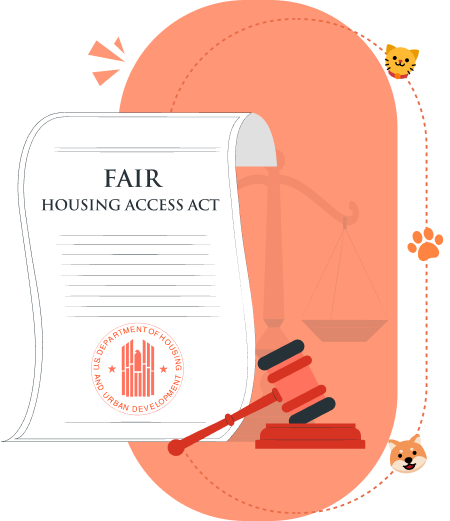Workplace Accommodations for ESAs Under Utah Law
While not defined in the ADA, an employee may request permission to bring an ESA as a reasonable accommodation. Utah’s UALD enforces state anti-discrimination laws; employers evaluate whether the ESA is necessary, effective, and reasonable in light of the job and workplace. Alternatives (schedule changes, different workspace, etc.) may be proposed.
Quests of Bringing an ESA to the Office
ESA access at work isn’t guaranteed. An employer can deny an ESA accommodation if it creates a direct safety risk, significantly disrupts operations, or causes undue hardship (e.g., severe allergies in close proximity or sanitation limits). Expect to provide reliable documentation; employers may suggest effective alternatives.
Pricing
PSD Letter
Reviews
ESA By States
ESA Laws
Resources


